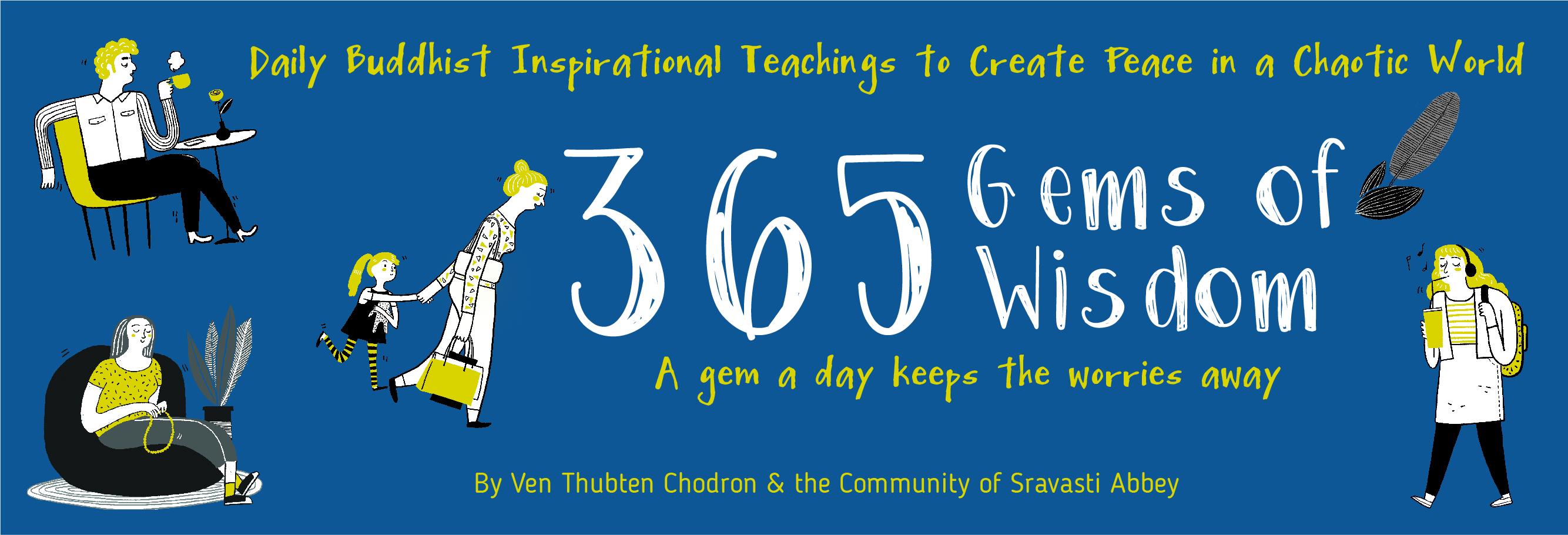December 26 : Think for Yourself
You need to learn to think for yourself, which is quite important when you are in the Dharma. You learn from and listen to your teachers, but you think for yourself. Especially if it is a Dharma point, you should think, “Is this true or is this not true?” If I am talking about emptiness, do not just think, “Well, somebody said everything is empty of inherent existence so it must be.” Think about it and understand it. In that way, it becomes your own and you get it on a deep internal level.
There are other things we need to look at also, not only specific Dharma points we learn from others, but thinking for yourself in regard to the way the community does things, or the way social issues are regarded. Learn and listen, from your teachers and others, but think for yourself. Do not just listen and think, “My teacher said so, so I believe.” We go to our teachers to learn the Dharma, not to learn politics, not to learn social economics, or any of these kinds of topics.
We need to take Dharma principles and apply them to things but do it in our own creative way. Becoming a monastic does not mean that we are all coming out of the same cookie cutter. That does not work because we all come into this world with different talents, different dispositions, and different interests. I think we should recognise that and work with what we have and use what we have for the benefit of all beings. Instead of trying to make all beings fit into the same square hole, especially if you are round or star-shaped or triangular-shaped, use the beauty of your shape to benefit sentient beings instead of squeezing yourself and trying to be something you are not. I learnt that lesson trying to be a Tibetan nun; there was no way I could fit into how they were supposed to act.
It is a balancing act between learning from others and thinking for ourselves. Especially at the beginning, you really want to learn and listen. But again, even as you are learning and listening, you must think about the teachings yourself.
If somebody says you have a precious human life, do you go, “Yeah, I do, because you said so.” That is not going to bring stability to your practice. If you really think for yourself about what the qualities of a precious human life are, then it comes home in your heart what you have.
In saying this, I am not saying do not accept any guidance. Accept guidance but try to understand the reason for the guidance. See if the guidance is in the Dharma or if the guidance is in cultural differences or politics or something like that. We and our teachers can have different political views, we can have different views on social issues. You have to work it out with your mind so that you understand any actual guidance that you have received and then can apply it to your mind in the future.
“365 Gems of Wisdom” e-book is out now!

